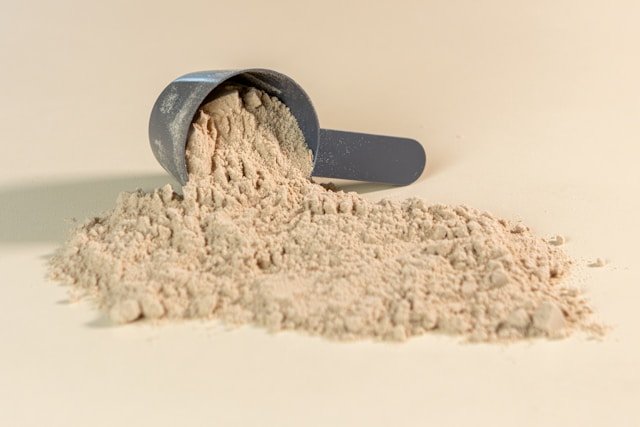A new study reveals alarming levels of heavy metals in protein powders, raising concerns about consumer safety.
A recent report from the Clean Label Project has raised alarm over the presence of dangerous heavy metals in popular protein powders. Released on January 9, 2025, the study found elevated levels of lead and cadmium in many of the protein powders tested, even though these contaminants aren’t typically listed on nutrition labels. The discovery suggests that consumers may unknowingly be exposing themselves to harmful substances that could impact their health.
Lead, a known neurotoxin, has been linked to developmental disorders and high blood pressure, while cadmium is a carcinogen that can damage kidneys, bones, and lungs. According to Dr. Felicia Wu, a professor of food safety at Michigan State University, “There is no safe level of lead,” and “cadmium exposure can lead to serious health risks.”
Embed from Getty ImagesThe report tested 160 protein powders from 70 top brands, accounting for 83% of the market, with nearly 36,000 tests conducted on 258 different contaminants. Shockingly, 77% of plant-based protein powders, 79% of organic protein powders, and 65% of chocolate-flavored powders exceeded California’s Proposition 65 safety thresholds for toxic metals.
While plant-based protein powders were found to contain significantly higher levels of lead—three times more than whey-based powders—chocolate-flavored products had up to four times more lead and up to 110 times more cadmium than vanilla-flavored varieties. The report did not specify the exact brands or product names tested to ensure fairness and avoid conflicts of interest.
On a positive note, only 3 of the 160 protein powders tested contained BPA or BPS, which are commonly found in plastics.
While this report concerns protein powders sold in the US, Dr. Wu pointed out that it’s hard to assess the real risk for UK consumers without more details about daily usage amounts. However, whey- and egg-based protein powders, particularly those flavored with vanilla, were found to have the least amount of contaminants. For those on a plant-based diet, pea-based vanilla-flavored powders seem to be the safest option.
